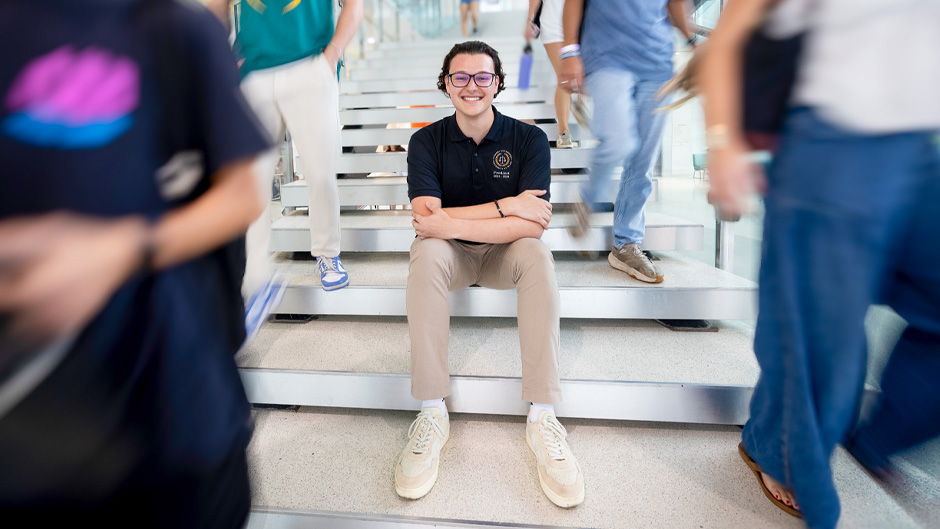## From Classroom to Jungle: Miami Students Level Up Rural Costa Rica’s Economy
Forget spreadsheets and stuffy lectures. Imagine a classroom where the textbooks are rainforests, the lessons are learned through hands-on experience, and the reward is helping a community thrive. That’s the reality for a group of University of Miami students who traded their laptops for machetes, heading into the heart of Costa Rica to build a brighter future.

Impactful Workshops: A Look at the Business Concepts Taught to Students and Entrepreneurs
The Hyperion Council, a pro bono student group at the University of Miami’s Herbert Business School, recently traveled to rural Turrialba, Costa Rica, to deliver impactful workshops to local students and female entrepreneurs. The workshops covered a range of core business concepts, designed to empower participants with practical knowledge and skills.
According to Paul Lohmann, a recent graduate who participated in the trip, the Hyperion Council focused on four key areas:
- Personal Finance
- Business Financials
- Marketing
- Overall Operations
“We chose these areas because we thought they would have the most significant impact without being too overwhelming,” Lohmann explained. The workshops were tailored to the specific needs of the participants, ranging from elementary school students learning the basics of budgeting and saving to experienced entrepreneurs seeking to refine their pricing strategies and operational efficiency.
Real-World Solutions: Case Studies of Student-Led Initiatives and Their Tangible Outcomes
The Hyperion Council’s trip to Costa Rica wasn’t just about theoretical knowledge; it was about empowering local businesses with tangible solutions. Amanda Galante, another participant, shared a compelling case study:
“I worked with one woman who had an ice cream business, but she didn’t know why she wasn’t making money,” Galante recounted. “So, we kind of restructured her pricing and her budgeting and she was able to make more money.”
This example highlights the real-world impact of the Hyperion Council’s efforts. By providing practical advice and guidance, the students helped a small business owner overcome financial challenges and achieve sustainable growth.
Beyond the Textbook: The Importance of Experiential Learning and Cultural Immersion
The Costa Rica trip offered more than just business acumen; it provided a valuable opportunity for cultural immersion and experiential learning. Veronica Rubio, a sophomore majoring in finance and quantitative economics, expressed the profound impact of the experience:
“This was by far my best Miami Herbert Business School experience,” Rubio declared. “Going to a small town ‘in the mountains, in the middle of nowhere,’ as she described Turrialba, allowed the students to connect with local communities on a deeper level.
This hands-on approach to learning, combined with the cultural exchange, fostered a deeper understanding of the complexities of doing business in a diverse global environment.
Sustainable Growth for Costa Rican Businesses
Empowering Women: The Council’s Focus on Supporting Female Entrepreneurs in Rural Communities
The Hyperion Council’s trip to Costa Rica specifically focused on empowering female entrepreneurs in rural communities. This emphasis reflects a growing recognition of the crucial role women play in driving economic development, particularly in developing countries.
By providing targeted support and mentorship to female business owners, the Hyperion Council aims to create a lasting impact on the local economy and empower women to achieve their full entrepreneurial potential.
Long-Term Impact: Analyzing the Potential for Lasting Economic Development through Knowledge Transfer
The long-term impact of the Hyperion Council’s initiative extends beyond the immediate benefits to individual entrepreneurs. By transferring business knowledge and skills to local communities, the program contributes to the sustainable development of the Costa Rican economy.
As businesses in rural areas grow and thrive, they create jobs, generate income, and contribute to the overall prosperity of the region. This ripple effect can have a profound impact on the lives of individuals and families.
Lessons Learned: Reflections from Students on the Challenges and Rewards of Cross-Cultural Business Collaboration
The Hyperion Council’s experience in Costa Rica provided valuable lessons for the students involved. They learned about the challenges and rewards of cross-cultural business collaboration, the importance of adaptability, and the power of human connection.
These experiences not only enhanced their business acumen but also broadened their worldview and prepared them for success in an increasingly globalized economy.
Conclusion
Empowering Rural Communities through Business Education
In a heartwarming tale of academic innovation and community impact, the University of Miami’s students have brought a refreshing breeze of business acumen to rural Costa Rica. The article highlights the university’s efforts in pairing students with local entrepreneurs, providing essential business lessons and guidance to help them thrive in the competitive market. By fostering a collaborative environment, the students not only gained hands-on experience in business consulting but also developed a deeper understanding of the challenges faced by rural communities.
The significance of this initiative lies in its potential to bridge the gap between urban and rural economies. By equipping entrepreneurs with the necessary tools and knowledge, the program can help create sustainable businesses that drive economic growth and development in these under-resourced areas. This, in turn, can have far-reaching implications, including improved living standards, increased access to employment opportunities, and enhanced overall quality of life. Moreover, the program’s focus on experiential learning and community engagement sets a new standard for academic institutions, demonstrating the power of business education to make a tangible difference in the world.
As the University of Miami continues to push the boundaries of business education, we can expect to see a ripple effect of positive change in rural Costa Rica and beyond. The potential for replication and expansion of this model is vast, and it will be exciting to witness the growth of similar initiatives in the future. As we close this chapter, we are reminded that business education is not just about theoretical knowledge, but about empowering individuals and communities to drive real-world impact. As we look to the future, the question remains: what other innovative solutions will we see emerge from the intersection of business education and community development?